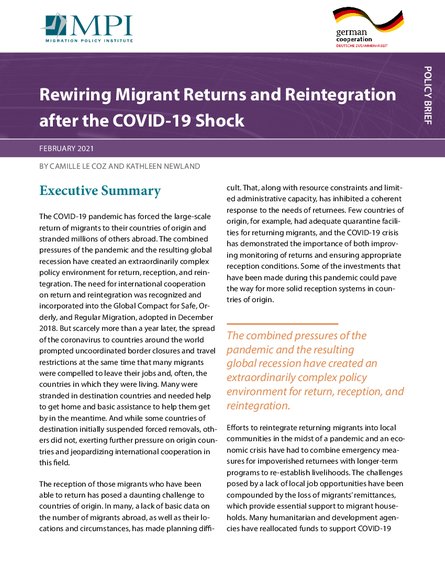
As the COVID-19 pandemic hit, millions of migrants were stranded in the countries where they work and live, and countless others were expelled or returned voluntarily to their countries of origin amid restrictions on mobility and widespread economic dislocation. Countless more migrants may yet return to their countries of origin as second and third waves of the outbreak are occurring.
Destination- and origin-country governments have engaged in chaotic and mixed policy responses to forced returns. Origin countries face the challenges of receiving returning nationals amid a public-health crisis and reintegrating them into communities and labor markets at a time of economic struggles. The experiences highlight the importance of countries along the migration continuum being better prepared for disruptions to migration patterns. A greater focus on sustainable reintegration is needed, not only for the current crisis but for the long term, Migration Policy Institute (MPI) analysts argue in a new policy brief.
In Rewiring Migrant Returns and Reintegration after the COVID-19 Shock, Camille Le Coz and Kathleen Newland examine the effects of the pandemic on return, reception and reintegration. The brief also considers how to strengthen return infrastructure and partnerships between countries of origin and destination going forward.